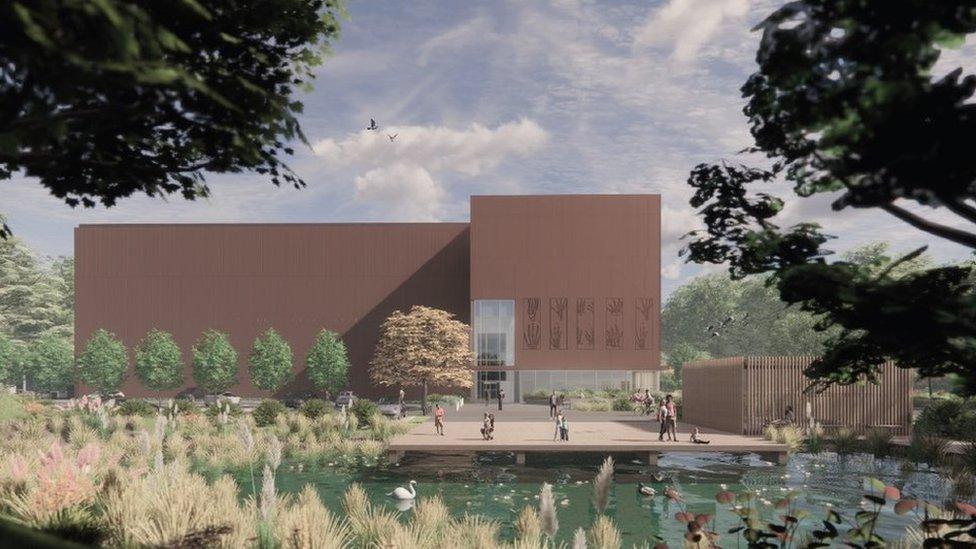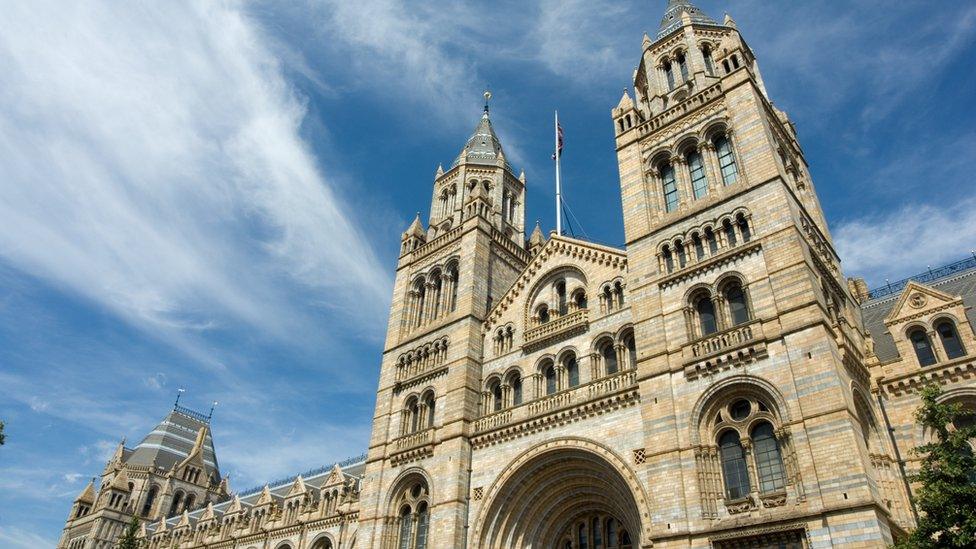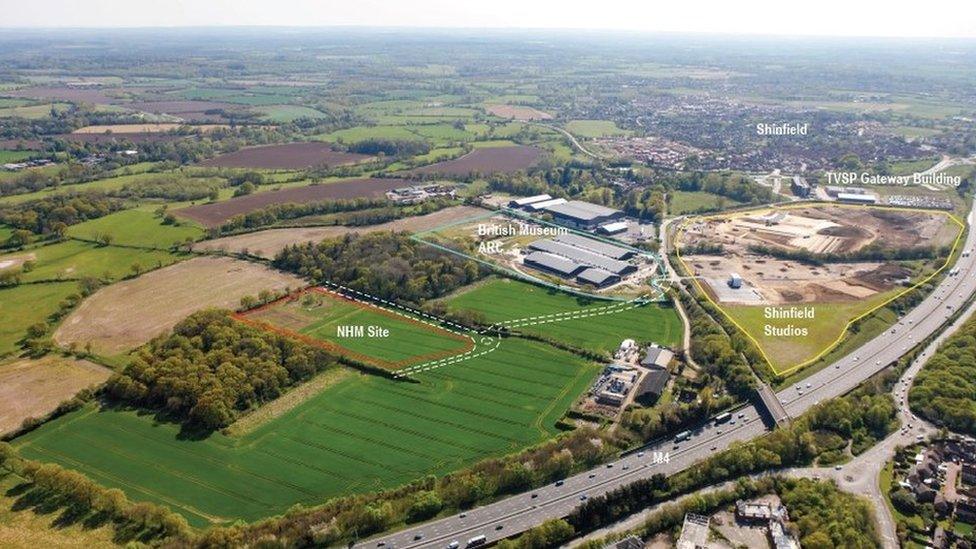Natural History Museum wants opinions on their Shinfield centre plans
- Published

The building's features would include an energy efficient design and the use of renewable power sources
Residents can have their say on plans for a Natural History Museum centre.
The £200m site at the Thames Valley Science Park in Shinfield is a collaboration with the University of Reading.
The museum is giving a first glimpse of a proposed research complex and a chance to give feedback on the designs.
A community presentation is on display at the Gateway Building on Thursday. The centre would house a third of the Natural History Museum's assets.
That would include its mammal collections and non-insect invertebrates - such as corals, crustaceans, molluscs, and worms - totalling more than 27 million specimens.

A third of items held by the Natural History Museum would be moved to the planned site in Shinfield
Vice-chancellor of the University of Reading Prof Robert Van de Noort believes it "could provide significant opportunities for academics and students, as well as bringing benefits to the broader local area".
The proposed scientific hub would not be open to the public, but is set to make the Natural History Museum's collections digitally available to academics around the world.

The Natural History Museum centre would be at the Thames Valley Science Park in Shinfield
The museum describes it as "a gateway to the natural world" which would help studies of climate change, food security and biodiversity conservation.
The building's features would include an energy efficient design and the use of renewable power sources.
If planning permission is granted, then construction could start in late 2024 and finish in 2027, with the building coming into use from 2031.

Follow BBC South on Facebook, external, Twitter, external, or Instagram, external. Send your story ideas to south.newsonline@bbc.co.uk, external.
- Published20 May 2022
